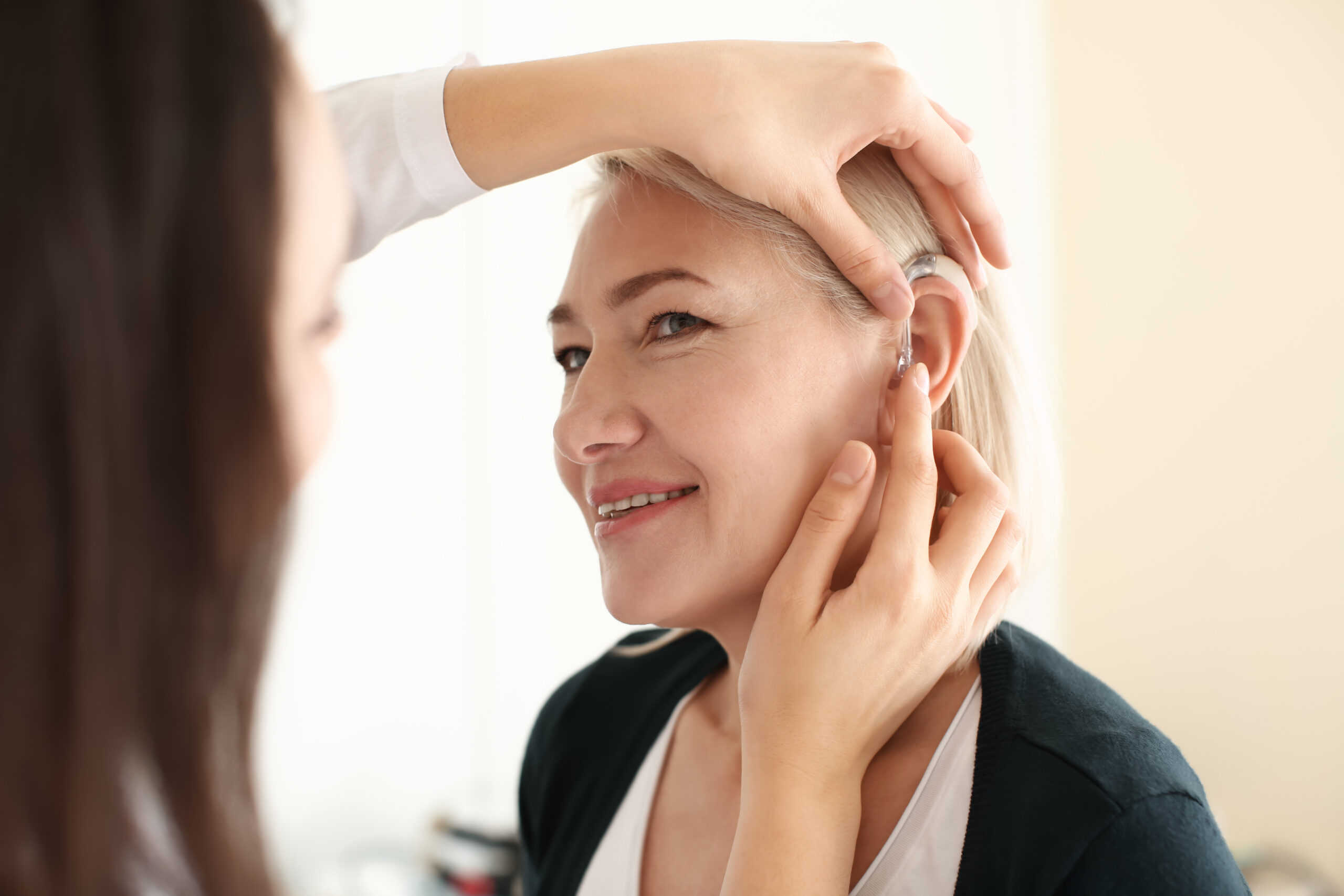Approximately 20 percent of adults in the U.S. report some degree of hearing loss, according to the Hearing Loss Association of America. If you’re one of them, it can profoundly affect your ability to communicate and relate to others. Left untreated, it may lead to a host of problems, including feelings of isolation, negativism, stress, depression, and memory loss. It’s important to have your hearing checked regularly, even if you think your hearing is fine. And if you suspect a loved one suffers from hearing loss, urge him or her to see an audiologist for evaluation.
In addition to routine diagnostic and hearing evaluations, today’s full-service audiologists provide comprehensive hearing healthcare. This typically includes hearing aid fittings, programming, and repairs, and services such as live speech mapping, tinnitus treatment options, cerumen removal, and more. Since you will likely see your audiologist on a regular basis, look for one with an office that is conveniently located from where you live or work.
Location is important, but finding an audiologist who meets your individual needs and is up-to-date on the latest innovations can be worth a drive. Amazing technological advancements have been made over the last few years in the field of audiology. With this in mind, it is paramount that you find an audiologist who is up-to-date on the latest advances in diagnostics and treatment options, including cutting-edge digital programmable hearing aids. These new generation devices are not only powerful, but so tiny they are barely perceptible. And they come with enhanced features such as the ability to pair them with your cell phone. The more hearing aid options an audiologist offers increases their ability to customize the technology to your needs and lifestyle.
When researching audiologists, remember their credentials can help you know you will be seen by a professional with extensive training who has demonstrated a commitment to maintaining the highest levels of professional competency. Someone who is board certified by the American Board of Audiology (ABA) has completed graduate study in audiology from a regionally accredited university, has earned a doctoral degree in audiology (AuD), has completed a minimum of 2,000 hours of mentored professional practice, and must engage in 60 hours of continuous learning to recertify every three years. Other credentials may include CCC-A, which signifies the audiologist holds a certificate of clinical competency in audiology, issued by the American Speech Language and Hearing Association (ASHA). Professionals awarded the CCC-A have completed a rigorous academic program and a supervised clinical experience and have passed a national examination. F-AAA delineates audiologists who are Fellows of the American Academy of Audiology.
Lastly, finding an audiologist with whom you feel comfortable and who educates you is an advantage. Success with hearing instruments depends on the relationship you have with your audiologist as much as it does the actual hearing device itself. Better hearing and easier communication are a journey. You want an audiologist who will work with you in partnership every step of the way.

